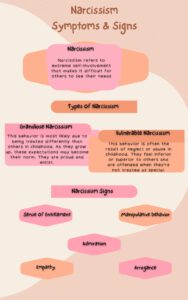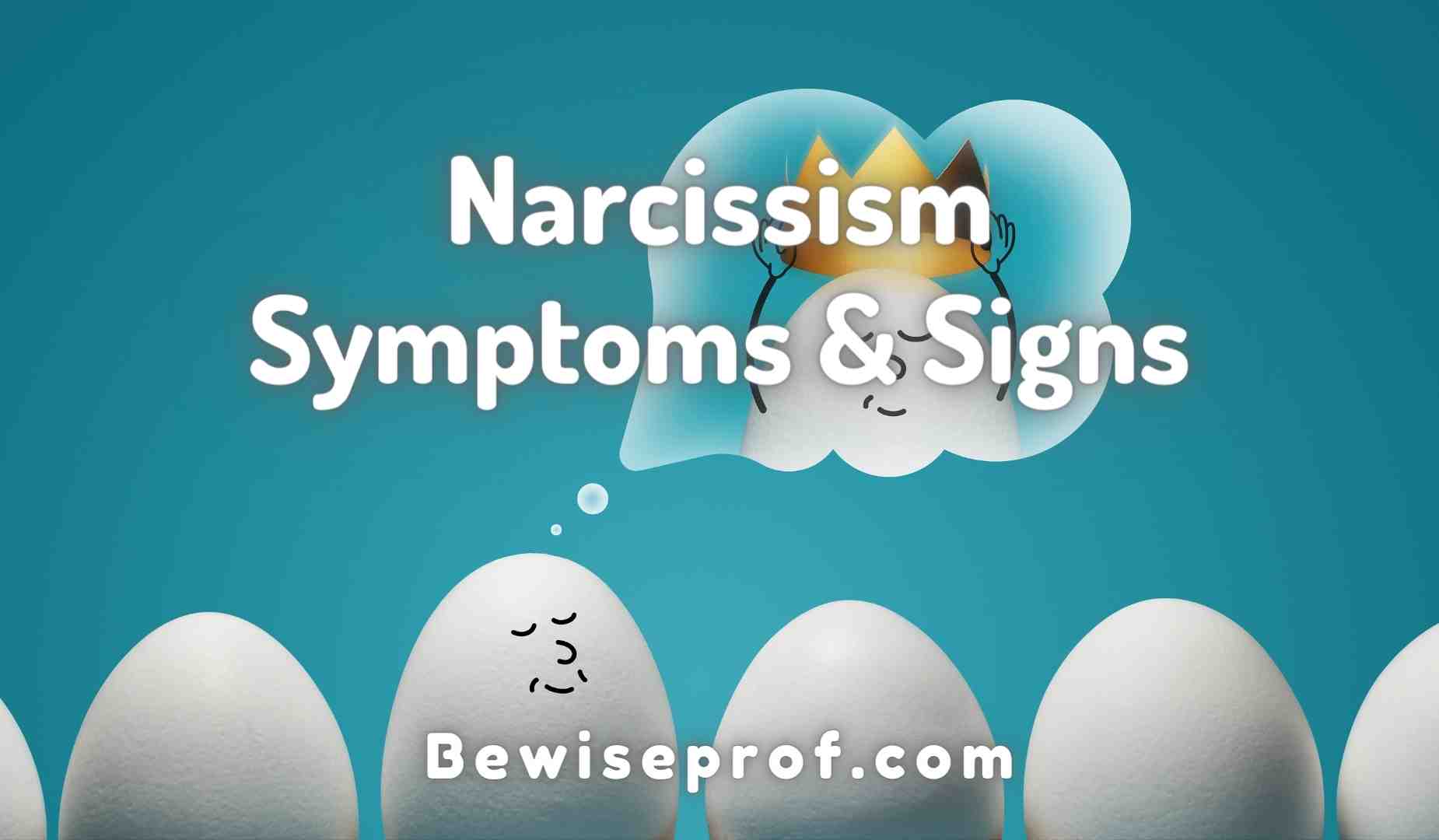Narcissism refers to extreme self-involvement that makes it difficult for others to see their needs. True narcissists are not afraid to show Narcissism, even though some people can be selfish. They don’t understand the impact their actions have on others.
It is important to remember that Narcissism can be a trait and a part of larger personality disorders. Narcissistic personality disorder (NPD) is not a common condition. Narcissism can be seen in a variety of people. NPD is the highest classification, while others with narcissistic traits may be at the lower end.
Narcissists can be charming and charismatic, even if they show signs. They are often not prone to displaying negative behavior immediately, especially in relationships. Narcissists often seek out people who will feed their egos. Even if they are only superficially connected, they build relationships that reinforce their self-image.
There are many types of Narcissism.
Narcissistic behavior may fall under one of two types of Narcissism. Both types may share some common traits but also have different childhood experiences; These two types can also influence how people behave in relationships.
Grandiose Narcissism
This behavior is most likely due to being treated differently than others in childhood. As they grow up, these expectations may become their norm. They are proud and elitist.
Grandiose narcissists are aggressive and dominant . They exaggerate the importance of their status. They are self-confident and don’t show any emotion.
Vulnerable Narcissism
This behavior is often the result of neglect or abuse in childhood. This behavior makes people more sensitive. They are more sensitive to feelings of inadequacy and Narcissism. They feel inferior or superior to others and are offended when they’re not treated as special.

Narcissism Signs
Because many narcissists or people with NPD are not seeking treatment, Narcissism continues to be studied. You may be able to identify some common characteristics of narcissists.
Sense Of Entitlement
Narcissists believe they are better than others and should be treated differently. They believe others should follow their desires, and the rules don’t apply to them.
Manipulative behavior
Narcissism also includes manipulative and controlling behavior. While a narcissist may initially try to please and impress you, eventually, their needs will come first.
Narcissists will attempt to control how people relate to them. To gain an advantage over others, they may even try to exploit them.
Admiration
Narcissists are known for their constant need to be praised or admired. This behavior is a sign that they need validation from others. They often exaggerate or brag about their achievements to get recognition. To boost their self-esteem, they also want to feel appreciated.
Empathy
Another sign of Narcissism is a lack of empathy. This indicates that the narcissist cannot or is unwilling to empathize or understand the feelings, needs, and wants of others. It is also difficult for them to take responsibility for their behavior.
Arrogance
Narcissistic people see themselves as superior to others and maybe rude or abusive if they don’t get the treatment they deserve. They may act or speak rudely towards those they consider inferior, even though they believe they are superior.
Narcissism: How to Deal
High levels of Narcissism and NPD can be recognized with the correct treatment. This could help improve their lives as well as the lives of others. Narcissists have been known to avoid seeking help because it does not fit their self-image. A loved one may be able to encourage them to seek professional help.
Recognizing that you are in a relationship of Narcissism can help you change the dynamic and encourage your partner to see you differently. You can change how your partner sees you and help to reduce the negative effects of narcissistic behavior.
You can change your self-esteem by recognizing your Narcissism. It would be best to treat yourself with kindness, not compare yourself to others. Stop comparing yourself to others. This can reduce your need for praise or recognition.
